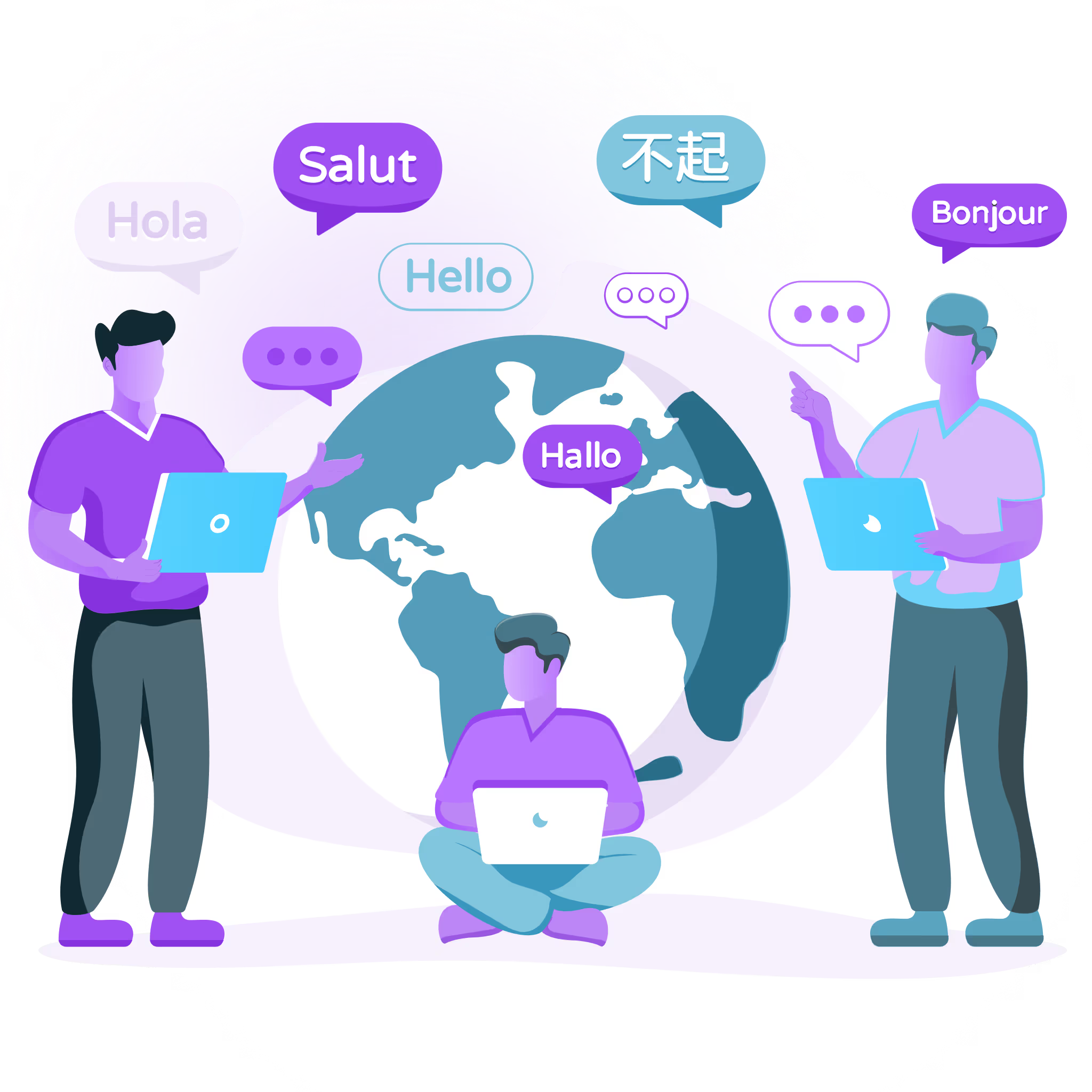AI translation has been a hot topic in the translation industry for some time. The Globalization and Localization Association (GALA) recently published the results of an informal survey taken by one of its members who had conducted an event featuring the latest information on MT. In the run up to the event, the organizers took the opportunity to question the participants on the subject of MT.
They wanted to find out if people thought they should use MT and what are the primary benefits and risks they perceive when employing it. The results were very clear: although people recognized that MT comes with certain benefits, particularly with respect to time-saving, they were concerned about the loss of quality, especially when it comes to the translation of technical documentation. The following summarizes the answers to five questions that were put to the event participants.
Should You Use AI Translation?
Question 1 – Have You Had Any Experience With AI Translation?
The majority of the respondents said that they had had some experience with MT especially in a professional environment. Only about 25% had had no experience at all.
Question 2 – What Do You See as the Major Benefits of AI Translation?
The most common answer was that MT provided faster translations. Other benefits mentioned were cheaper translations, more translations, and a way to more inexpensively translate less important document types or languages. Just a few of the respondents thought that MT provides higher-quality translations.
Question 3 – Should You Use AI Translation - What Are the Risks?
The participants were asked what risks they perceived to be associated with MT in their professional environments. Most respondents believed that the greatest problem is poor or faulty translations. The majority of respondents not only did not expect an improvement in quality down the road, but they also thought there would be poor-quality translations to a much greater extent. Additional issues mentioned were becoming dependent on AI translation tools and/or their vendors, the security of important data, and job losses as a result of lower demand for human translators.
- The overall response showed that, as things stand now, participants have much more confidence in human translators than in AI translation algorithms.
Question 4 – What Do You Expect From AI Translation in Terms of Quality?
Most respondents said that they expected translations from MT to continue to be of low quality. Only a minority expected much higher quality in the future. The most important aspect of a translation mentioned was that it should be capable of being understood by the reader, and there was a consensus that MT was often not up to the mark in this respect..
Question 5 – How Do You See the Future of AI Translation?
The respondents clearly believed that MT has a future; no one believed that MT is just a passing phenomenon driven mainly by hype. Three out of four respondents thought that MT would continue to embed itself in certain areas, but only 10% held the opinion that MT would largely take over the human element in translations.
Conclusion of the Survey
The results of this small survey accord with the differing opinions on the topic of MT within the translation industry. It is generally recognized that MT is a promising technology that cannot be disregarded. However, there are justifiable doubts about its efficiency, especially when it comes to technical documentation. The algorithms of the MT engines can be creative and unpredictable, causing problems with respect to the guidelines and directives associated with technical writing.
AI Translation - The Trade Off
Machine translation undoubtedly saves costs but the trade off is quality. One way to overcome this dilemma is to use MT in combination with a human being. Make sure there is post-translation editing by a human translator who speaks the native language and who also has a deep cultural understanding of the targeted country or region. With technical content especially, it's also possible to up the ante even more and make use of a translator who has mastery of a specific subject. This combination approach allows for rapid AI translation of your content followed by a review to ensure accuracy and avoid any cultural faux pas that could be detrimental to your marketing efforts.
- It's often a challenge to balance the bottom line, and saving expenses by cutting out native-speaking human translators may seem like an obvious way to cut costs. However, before deciding to commit to a low-cost high- volume translation deal, take some time to think about the hidden costs of bad translation. Every piece of content represents your organization and your brand, so if you always translate with that in mind, you won’t go wrong.
Final Thoughts
It's still not evident what the future of AI translation will be. The extent to which automation in the form of MT will take over from human translators is dependent on both price and the quality of the translation algorithms used. Currently, where MT is used, translations are often post-edited by language-proficient translators to guard against any loss of quality. This enables global companies to combine the best of both worlds: finely tuned, fast machines on the one hand, and experienced translators on the other. Human translators can identify inconsistencies, iron out problems, and make company-specific adjustments that AI is unable to do (at least as of now!).
- Why Use Localize? One reason is that your human translator can be easily integrated into our platform. Have a chat with us to learn more about our platform and how we offer the highest quality translation and localization services to the international business community.



%201.png)




